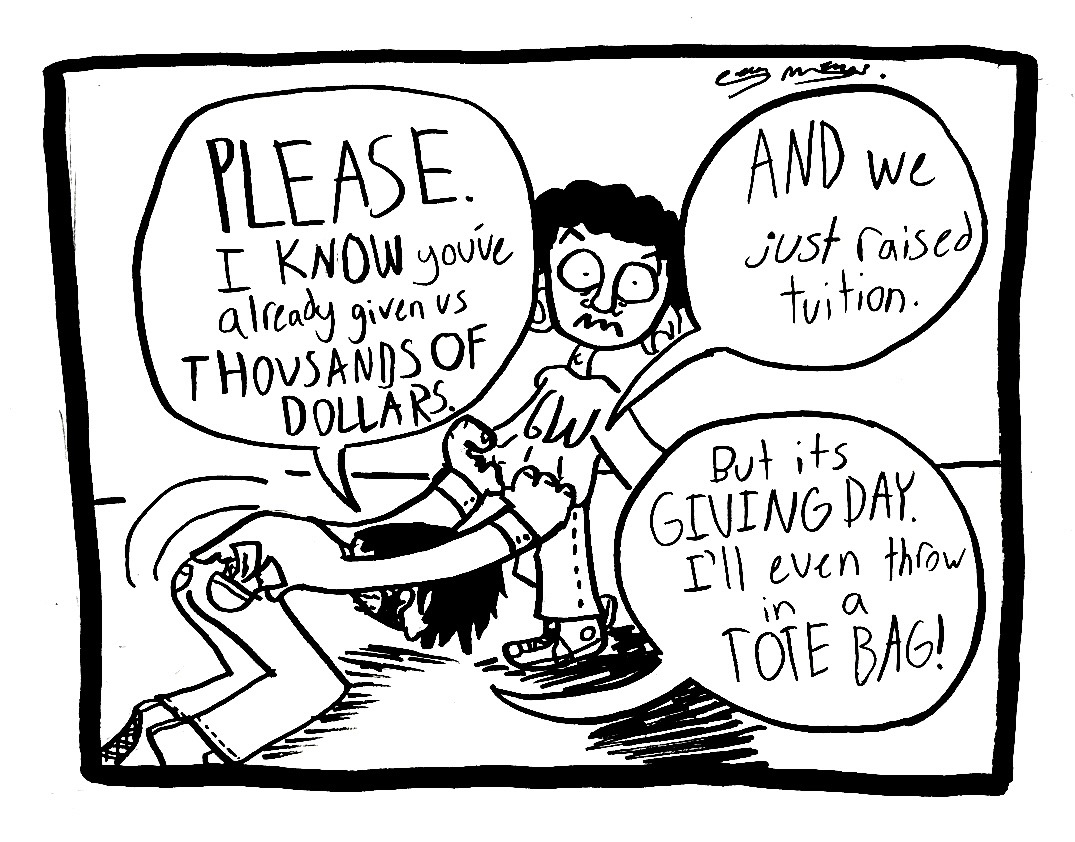St. Paul, Minn. – Saturday morning the Minnesota wind was particularly rough. The gray sky clouded over the city of St. Paul. The walk over to the AFL-CIO State Federation, where I work, seemed endless. It began to sink in and it was a reality difficult to bear. Senator Paul Wellstone is dead.
Saturday night I stood with tears streaming down my face with 5,000 Minnesota residents paying tribute to his life on the Capitol steps as a local Rabbi offered her prayers. For the last five weeks, I’d spent 16 hours a day trying to help Wellstone get re-elected. I lived and breathed the campaign and would have sweated blood for him. This morning politics was far from my mind. I thought about his wife and daughter who also perished. I thought about the 24-year-old staffer who was on the plane that crashed in snowy Evelneth, Minn..
Most of all, I thought about what brought me here. As a young progressive student I can count the number of politicians I actually look up to on one hand. At a time when politicians struggle to say what is convenient, find the center and abandon their ideas and ideals for re-election, I found solace and refuge in what Wellstone represented.
Wellstone was different from the typical politician. The son of poor Jewish immigrants, and a professor of political science for over 20 years at Carlton College, Wellstone was a well-known activist working on behalf of helping workers organize into unions, championing environmental causes and protecting local farmers. In plain terms, he was a fighter for working people.
In his book “The Conscience of a Liberal,” he tells the story of why he ran for Senate. He wrote when he taught his political science class, his students expressed cynicism about politicians and the political process. “Fake,” “phony,” “corrupt,” “promises never kept” and “big money” were words his students used to describe what they thought of politicians. Wellstone felt this lack of faith in elected officials is one of the core reasons many young people do not vote, and why as youth we feel shoved out of the political process.
He wanted to prove to his students that America was still one of the great human experiments of democracy in history. He wanted to show any American with good ideas could get elected free of personal wealth, donations from giant corporations, political action committee money or the influence of special interests.
Wellstone had this way of inspiring youth. I remember at one of the College Democrats national conventions he spoke passionately to a packed room about our civic responsibilities and our individual power to collectively inspire change. The speech ended with a standing ovation. The next day then-Vice President Al Gore spoke, and rather than listen to him, a groups of students gathered in the back of the room to listen to the tape of Wellstone speaking from the day before. This is the impact his words had because with Wellstone it was not rhetoric – he fought for everything he said. He gave us students a reason to continue to believe in the electoral process, demonstrated that is was OK to be an independent voice, and gave us progressives a hero who inspired us.
Senior Britta Schnoor told me the story of hearing Wellstone speak at a GW College Democrats event four years ago. She said Wellstone apologized for being late; he had to fly back to Minnesota because his wife was sick, but he wanted to make sure he did not miss an opportunity to talk with students.
“Most politicians refuse to speak with us, or would cancel if a fundraiser or dinner opportunity stood in the way. Wellstone went out of his way not to miss our event. His speech was inspiring and incredible, and really made us feel that we can evoke great change,” she said.
Another GW student, Nolen Gertz, met Wellstone on a campaign trip to New Hampshire in support of Bill Bradley’s presidential bid in the 2000 Democratic primary when he was a sophomore.
“I’ve never been a terribly political guy but I never missed an opportunity to see Wellstone speak,” Gertz said. “He made me care about issues that others made me shy away from.”
One of the issues Wellstone consistently fought for was Universal Health Care Coverage. With rising health care costs for most Americans, Wellstone was outspoken about the plight of uninsured Americans, the skyrocketing prices of prescription drugs and the need to greatly expand the Medicare and Medicaid programs as a step towards universal coverage. He believed in offering Americans a “single payer” health care system similar to Canada. The system would still allow doctors and hospitals to remain in the private sector but consolidate to one insurer or payer, like Medicare.
Wellstone was an advocate for the working poor and the right for workers to bargain collectively and join unions. He believed unions are needed today more than ever, as many Americans in the United States today who work full-time on minimum wage remain in poverty. He also fought for new laws that would guarantee women equal pay for equal work.
He dedicated almost a decade to fighting for Minnesota farmers. Wellstone said farmers face a “stacked deck” and are forced into bankruptcy and poverty as a result of agricultural subsidies flowing almost exclusively to large agribusiness. Wellstone actively fought the Freedom to Farm Act because it gave an unfair advantage to large livestock producers. Even at risk to winning his first Senate race, Wellstone was arrested with other farmers in protest that they are being forced into poverty.
Wellstone supported so many other progressive causes it is impossible to list every one. From the environment, to forging legislation to combat domestic violence, to campaign finance reform and voting against the war in Iraq, Wellstone was a voice for those who are often denied representation in American politics.
Understanding Wellstone is irreplaceable, Minnesotans seem determined to continue his legacy by denying the Republicans the Senate, and in continuing the struggle for the progressive ideals he symbolized. They insist that it is what he would have wanted.
Wellstone often referred to labor leader Mother Jones’ statement, “Mourn for the dead, fight like hell for the living.” Many felt that political action would be the best way to commemorate Wellstone’s life. One short day after his death, thousands gathered in Minnesota in opposition to Bush’s war in Iraq. Spontaneously during the march a chant began.
“Wellstone! Wellstone! Wellstone!”
-The writer, a graduate student in the School of Government and Political Management, is a Hatchet columnist currently campaigning in Minnesota.






